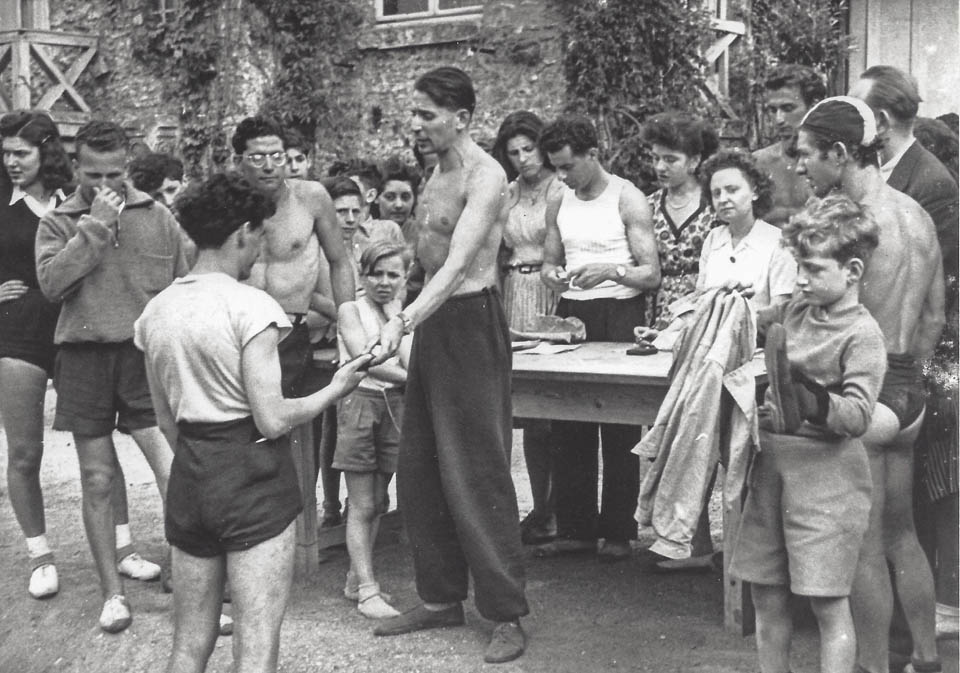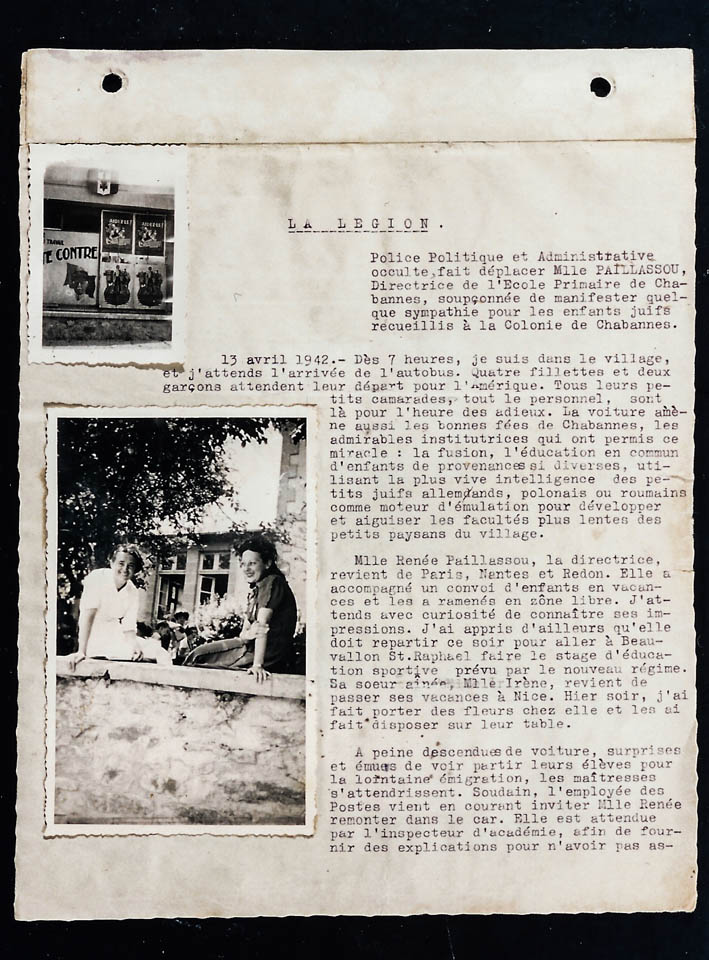History
A people that does not want to take responsibility for its own history is condemned to relive that history,
but on worse terms.
– Primo Levi
 Of the 330,000 Jews living in France during the Second World War, 76,000, including over 11,000 children, were murdered in Nazi concentration camps. They were often denounced by their neighbors in exchange for money and rounded up for deportation by the French or Vichy Police. Only three percent of the deported Jews survived the atrocities committed at concentration camps like Auschwitz. Another three to four thousand Jews died from abominable conditions in overcrowded and unhygienic French internment camps, where diseases like typhus and dysentery were rampant. France distinguished itself as the only unoccupied country to participate actively in The Final Solution of The Third Reich.
Of the 330,000 Jews living in France during the Second World War, 76,000, including over 11,000 children, were murdered in Nazi concentration camps. They were often denounced by their neighbors in exchange for money and rounded up for deportation by the French or Vichy Police. Only three percent of the deported Jews survived the atrocities committed at concentration camps like Auschwitz. Another three to four thousand Jews died from abominable conditions in overcrowded and unhygienic French internment camps, where diseases like typhus and dysentery were rampant. France distinguished itself as the only unoccupied country to participate actively in The Final Solution of The Third Reich.
Even if Vichy’s initial intent was not murder, they conducted a census of all Jews in the Free Zone, anticipated and tried to surpass deportation quotas imposed by the Nazis and offered to deport Jewish children at a time when only adults were demanded. In addition, Vichy seemed eager to expel France’s population of newly arrived Jewish refugees. In 1940, about half of the Jews living in France were foreign-born. Fleeing persecution in countries like Germany, Austria, Czechoslovakia, Poland and Rumania, they sought sanctuary in France, a traditional haven for refugees,during the early war years. In the end, France took better care of its own Jews; only 20 percent of the Jews deported from France were native-born.
 Tapping into France’s anti-Semitic traditions, the Vichy Government, headed by the eighty-four year old World War I hero Maréchal Philippe Pétain, instituted some 400 anti-Jewish laws during its four-year tenure. The first “Statut des Juifs,” enacted in October of 1940, surpassed the anti-Jewish laws of the Nazis in its broader definition of Jews.
Tapping into France’s anti-Semitic traditions, the Vichy Government, headed by the eighty-four year old World War I hero Maréchal Philippe Pétain, instituted some 400 anti-Jewish laws during its four-year tenure. The first “Statut des Juifs,” enacted in October of 1940, surpassed the anti-Jewish laws of the Nazis in its broader definition of Jews.
When the first anti-Jewish laws were enacted, many assimilated and well-established Jews living in France believed they were exempt. Some of these French-born Jews were initially Petainists, and believed that the Marechal and his Free Zone would provide a sanctuary for them. But as law after law gradually stripped them of property, profession, and personal and public rights, these Jews learned that they were mistaken. Their beloved France, the first country to emancipate the Jews, had betrayed them and its own most cherished principles.
On July 16, 1942, known as “Black Thursday,” 14,000 Jews, including 4,051 children, were forcibly assembled at the Velodrome d’Hiver (Le Vel d’Hiver) in Paris. They were detained for four days in the overcrowded stadium, with little food or water and terrible sanitary conditions. Their fate was far worse; they were sent first to the French concentration camp at Drancy and then to Auschwitz. Only 30 adults survived. Although Paris was occupied by the Nazis at the time,the operation was carried out almost solely by French police.
The round-up that took the six adolescents from the Chateau of Chabannes on August 26, 1942 was part of an enormous sweep of Jews in the Free Zone. Altogether 10,522 Jews were arrested and deported during these raids, including 134 children from OSE homes. All of the arrests were carried out by Vichy Police because the Free Zone was still unoccupied by the Nazis. Their job was easy, because the whereabouts of all Jews was already of public record in August of 1942, due to the mandatory nationwide census.
For years, the nature of Vichy’s collaboration with the Nazis and its anti-Jewish policies were not recorded in history textbooks. Generations of French students were kept in the dark about the atrocities committed by the Vichy regime. The government perpetuated what is now a discredited myth in France – that the French were the forced subjects of Nazi domination. It took fifty years for the French Government, speaking through its President Jacques Chirac, to take responsibility for the crimes of Vichy. Thanks to the militant and persistent efforts of Serge and Beate Klarsfeld and others, the history of this controversial period has finally been rewritten in France.